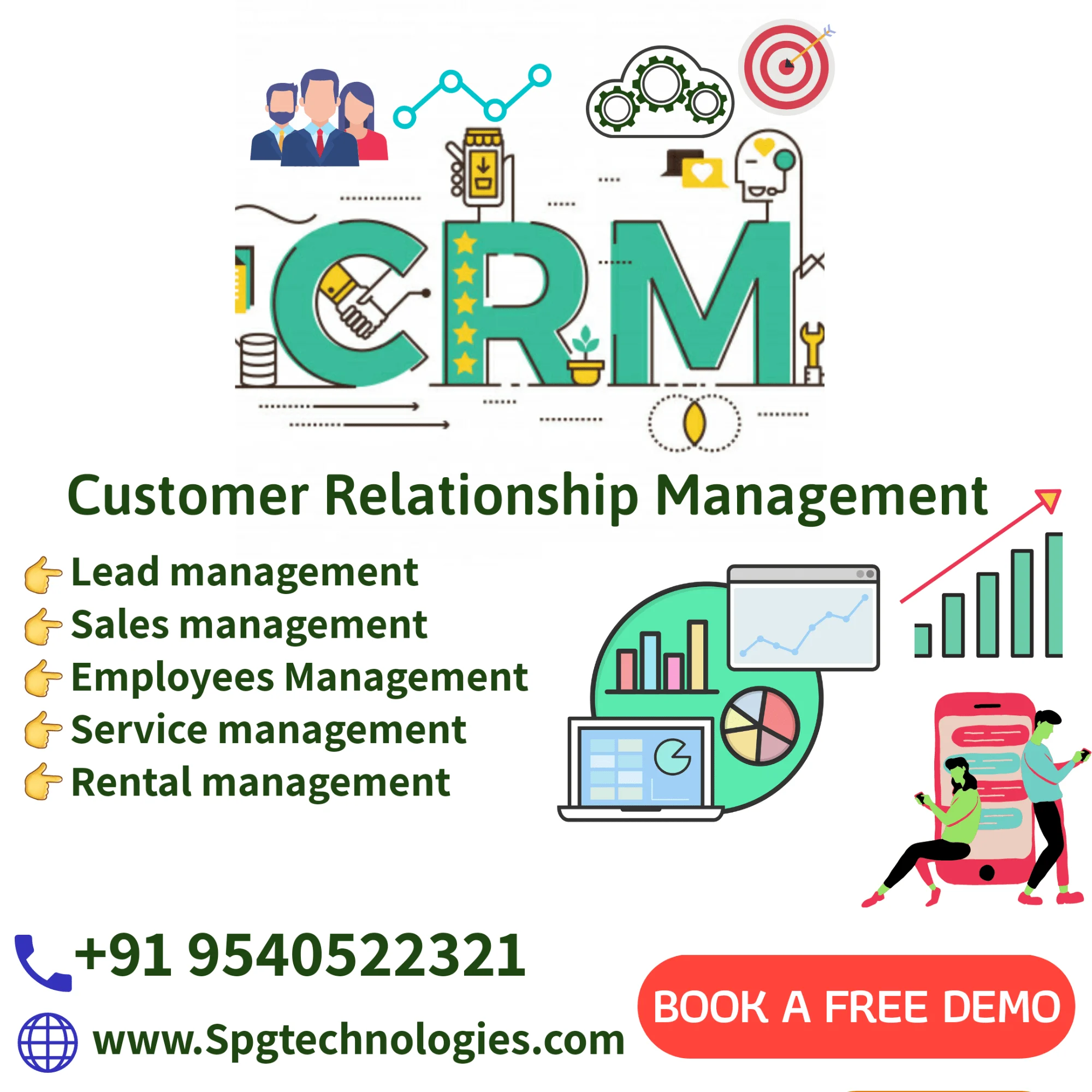In the digital age, businesses are constantly seeking ways to enhance their customer relationships, and one of the most effective tools for achieving this is cutting-edge CRM software. By utilizing advanced technology, companies can better understand their customers’ needs and preferences, and tailor their marketing and sales efforts accordingly. This not only leads to increased customer satisfaction and loyalty, but also helps businesses drive growth and profitability in an increasingly competitive marketplace. Cutting-Edge CRM Software: Enhancing Customer Relationships in the Digital Age is a crucial aspect of modern business strategy, enabling companies to stay ahead of the curve and deliver exceptional customer experiences.
As businesses strive to stay competitive in the digital age, the utilization of cutting-edge CRM software is becoming increasingly important. Companies are keen to adopt advanced technology to gain valuable insights into customer behavior, improve communication, and streamline their sales and marketing processes. With the ability to track customer interactions across various touchpoints and analyze data in real-time, businesses can make informed decisions and create personalized experiences for their customers. In today’s fast-paced and dynamic market, the use of cutting-edge CRM software is essential for companies looking to thrive and maintain strong customer relationships.
The Evolution of CRM Software
CRM software has come a long way since its inception in the 1980s. Initially, CRM systems were primarily used for managing contact information and sales leads. However, with the advancement of technology, modern CRM software now offers a wide range of features including customer data management, analytics, marketing automation, and customer support. This evolution has transformed CRM software from a simple contact management tool into a comprehensive solution for building and maintaining customer relationships.
Today, CRM software is an essential tool for businesses of all sizes, enabling them to streamline their sales and marketing processes, gain valuable insights into customer behavior, and deliver personalized experiences. With the integration of artificial intelligence and machine learning, CRM software is becoming even more advanced, helping businesses to predict customer needs and automate certain tasks, ultimately enhancing customer relationships in the digital age.
The Impact of CRM Software on Customer Relationships
CRM software has revolutionized the way businesses interact with their customers. By centralizing customer data and interactions, CRM software enables businesses to provide a seamless and personalized experience to their customers. This leads to improved customer satisfaction, loyalty, and retention. Additionally, CRM software allows businesses to track and analyze customer interactions, which in turn helps them to better understand their customers’ needs and preferences. This valuable insight enables businesses to tailor their products and services to meet customer demands, ultimately strengthening customer relationships.
Furthermore, CRM software empowers businesses to engage with customers across multiple channels, including email, social media, and live chat, ensuring a consistent and cohesive experience. By leveraging CRM software, businesses can proactively address customer concerns, provide timely support, and anticipate future needs, all of which contribute to building long-lasting and profitable customer relationships.
Personalization and Customization in CRM Software
One of the key benefits of modern CRM software is its ability to personalize and customize interactions with customers. By leveraging customer data and insights, CRM software enables businesses to deliver targeted marketing campaigns, personalized recommendations, and tailored communications. This level of personalization fosters a deeper connection with customers, as they feel understood and valued by the business.
Moreover, CRM software allows for the customization of workflows and processes to align with the specific needs and goals of a business. Whether it’s creating custom fields to capture unique customer data or configuring automation rules to streamline internal operations, CRM software can be tailored to fit the individual requirements of a business, ultimately enhancing the effectiveness of customer relationship management.
Integration of AI and Machine Learning in CRM Software
The integration of artificial intelligence (AI) and machine learning in CRM software has opened up new possibilities for understanding and engaging with customers. AI-powered CRM systems can analyze large volumes of customer data to identify patterns, predict future behaviors, and even automate certain tasks such as lead scoring and email responses. This not only saves time and resources for businesses, but also enables them to deliver more personalized and timely interactions with customers.
Furthermore, AI and machine learning capabilities in CRM software can uncover valuable insights that may not be apparent through traditional analysis. By leveraging these advanced technologies, businesses can gain a deeper understanding of their customers’ preferences, identify new opportunities, and optimize their strategies for customer engagement, ultimately leading to stronger and more meaningful relationships with customers.
Mobile CRM: Empowering Customer Relationships on the Go
In today’s fast-paced and mobile-driven world, the ability to access CRM data and tools on the go is crucial for building and maintaining customer relationships. Mobile CRM software enables sales and customer service teams to access real-time customer information, update records, and communicate with customers from anywhere, at any time. This level of accessibility and flexibility not only enhances productivity, but also allows for more immediate and personalized interactions with customers.
Moreover, mobile CRM empowers field sales and service representatives to be more effective in their roles, as they can access important customer data, track their activities, and manage their pipelines while on the move. This level of connectivity and efficiency contributes to improved customer relationships, as it allows for seamless communication and responsiveness, ultimately leading to greater customer satisfaction and loyalty.
Enhancing Customer Support with CRM Software
CRM software plays a pivotal role in enhancing customer support by providing a centralized platform for managing customer inquiries, issues, and feedback. By capturing and organizing customer interactions across various channels, such as phone, email, and social media, CRM software enables support teams to deliver more efficient and personalized assistance to customers. This leads to quicker resolution of issues, improved customer satisfaction, and ultimately, stronger customer relationships.
Furthermore, CRM software empowers support teams with valuable insights into customer histories and preferences, enabling them to anticipate needs, offer proactive support, and identify opportunities for upselling or cross-selling. By leveraging CRM software for customer support, businesses can not only resolve immediate concerns, but also build trust and loyalty with their customers through exceptional and personalized service.
Data Security and Compliance in CRM Software
With the increasing importance of data privacy and security, CRM software plays a critical role in ensuring the protection of customer information and compliance with regulations such as GDPR and CCPA. Modern CRM systems offer robust security features, such as data encryption, user authentication, and role-based access controls, to safeguard sensitive customer data from unauthorized access or breaches.
Additionally, CRM software assists businesses in maintaining compliance with data protection laws by providing tools for managing customer consent, honoring data retention policies, and generating audit trails for regulatory purposes. By prioritizing data security and compliance, businesses can build trust with their customers, demonstrate their commitment to protecting their personal information, and ultimately, strengthen customer relationships.
Scalability and Flexibility of CRM Software
CRM software is designed to be scalable and flexible, capable of growing and evolving with the needs of a business. Whether a business is a small startup or a large enterprise, CRM software can accommodate the expansion of customer data, users, and functionalities, without compromising performance or usability. This scalability ensures that businesses can continue to effectively manage and nurture customer relationships as they grow and adapt to changing market dynamics.
Furthermore, the flexibility of CRM software allows businesses to customize and extend its capabilities through integrations with other tools and systems, such as marketing automation platforms, e-commerce solutions, and customer service applications. This enables businesses to create a unified ecosystem for managing customer relationships, streamlining processes, and gaining a comprehensive view of their customers across the entire customer journey.
Measuring Success and ROI with CRM Software
CRM software provides businesses with valuable insights and metrics for measuring the success of their customer relationship management efforts. From tracking the performance of marketing campaigns to analyzing sales pipeline data, CRM software offers a wealth of analytics and reporting capabilities that enable businesses to assess the effectiveness of their strategies and initiatives.
By leveraging these insights, businesses can quantify the return on investment (ROI) of their CRM software, identifying areas for improvement, optimizing their resources, and maximizing the value of their customer relationships. This data-driven approach not only helps businesses to make informed decisions, but also ensures that their CRM efforts are aligned with their overarching business goals, ultimately driving growth and profitability.
The Future of CRM Software: Emerging Trends and Innovations
As technology continues to advance, the future of CRM software holds exciting possibilities for further enhancing customer relationships. Emerging trends such as predictive analytics, conversational AI, and augmented reality are poised to revolutionize the way businesses understand, engage, and serve their customers. These innovations will enable businesses to anticipate customer needs, deliver more immersive experiences, and provide proactive support, ultimately taking customer relationships to new heights.
Moreover, the integration of CRM software with emerging technologies such as the Internet of Things (IoT) and blockchain will open up new frontiers for capturing and leveraging customer data, while ensuring security and transparency. By staying abreast of these trends and innovations, businesses can position themselves at the forefront of customer relationship management, driving competitive advantage and delivering unparalleled value to their customers in the digital age.
| Topic | Description |
|---|---|
| CRM Software | Customer Relationship Management (CRM) software is designed to help businesses manage and analyze customer interactions and data throughout the customer lifecycle. |
| Enhancing Customer Relationships | CRM software allows businesses to build and maintain relationships with customers by providing a 360-degree view of customer information, enabling personalized communication and targeted marketing. |
| Digital Age | In the digital age, CRM software leverages technology such as AI, automation, and data analytics to streamline processes and provide insights for better decision-making, ultimately improving customer satisfaction and loyalty. |
CRM software plays a crucial role in helping businesses adapt to the digital age by providing tools to enhance customer relationships through personalized communication, targeted marketing, and data-driven insights.



